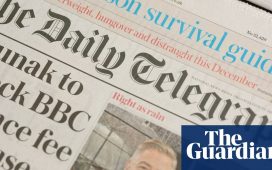Many people will see their tax bills increase despite National Insurance being cut in the new year.
Class 1 National Insurance contributions are being cut by two percentage points from January 6, dropping from 12 percent to 10 percent, as announced in the Autumn Statement.
But tax experts at Hargreaves Lansdown have warned many Britons will in fact see their tax bills increase over the coming months.
Sarah Coles, head of personal finance with the firm, said: “Assuming there’s no immediate income tax cut, an awful lot of people will still pay more tax.
“The OBR says the tax burden will rise every year to the end of the forecast in April 2029 – hitting 37.7 percent of GDP – the biggest burden since World War II.
“It’s not just existing taxpayers paying more, by the end of the forecast there will be four million more people paying income tax, three million more paying the higher rate and 400,000 more paying the additional rate.”
This is because rising incomes from wage increases is increasing people’s tax liability, while many of the tax thresholds remain at the same levels.
The expert said there may be a cut to income tax announced in the Spring Budget in a bid by the Conservatives to win votes in the General Election, but this may not come into force before 2025.
In other predictions for the year ahead, the financial group has said interest rates will fall but at a slow pace, with the OBR predicting rates will still be at four percent even by the end of 2028/2029.
Ms Coles said: “The jury is out on when the first rate cut might hit – with a spread of forecasts between the spring and winter next year. On balance, cuts are unlikely until at least the summer.
“Even when the Bank of England does cut rates, we’re expecting them to come at a glacial pace, because the Bank will be hyper-focused on inflation risks.”
The group is also foreseeing that savings rates will continue to fall as the rate increases from the Bank of England now appear to have stopped.
Ms Coles said the drop in rates will be gradual. She explained: “We expect to see them slowly drift south throughout the year. It means shopping around will be more important than ever as rates fall.
“If your cash has been sitting with a high street giant, it’s well worth considering a switch to a smaller or newer bank, or a cash savings platform, where your savings can work harder.”
For the latest personal finance news, follow us on Twitter at @ExpressMoney_.










